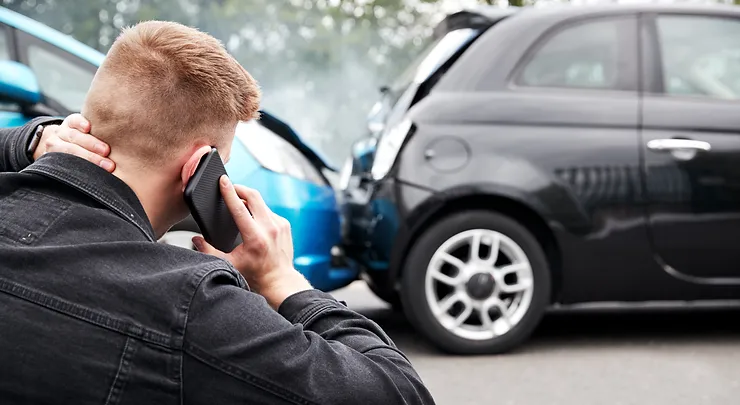9 Things You Should Do Immediately After A Car Accident | Ellijay Car Wreck Attorney


9 Things You Should Do Immediately After A Car Accident
1. Check For Injuries:
First check yourself for any injuries sustained in your car wreck – if you are able, then check your passenger and the occupants of any other car involved. If you have been injured, particularly, if your neck or head have been injured remain stationary – move on to step #2.
2. Call 911:
Call 911 and request emergency services. Let the operator know if anyone is injured, and how seriously so that EMS can properly respond to the call. This call will not only result in emergency medical services being dispatched to the car accident – but also a police officer.
3. Take Pictures And Videos:
If you are able, take pictures and videos of the scene, location of the cars, damage to the cars, and even the other driver and occupants of both vehicles. If at all possible it is imperative that you do this BEFORE anyone moves the vehicles. This will preserve an accurate record of the accident scene and ensure you have the evidence you need to prove how the car wreck occurred, who was really at fault, and if anyone was injured. If the other driver is admitting fault or talking about what happened, try to record their statement on either video or audio.
4. Get Somewhere Safe:
If you can leave your vehicle(s) in the current location without blocking traffic or endangering your safety, leave them until the police arrive. However, if you are blocking traffic or your vehicle is in an unsafe location, move your vehicle to a safe place. If you do need to move your vehicle, make sure you have taken pictures or videos to properly document the scene before doing so (so long as you can do so safely with endangering yourself).
5. Collect Information From Other Driver:
Although the police will typically collect all the relevant information from both drives involved in a car accident – information like the drivers name, drivers license number, home address, phone number, insurance company, and insurance policy number – occasionally this information may be lost or otherwise difficult to obtain. This information will be vital to ensuring you have a valid claim later, especially if a police officer does not make a report of the car accident for some reason.
6. Get Medical Attention:
If you have been injured in the car wreck, even if it is a mild injury, it is imperative that you seek medical attention. Often, after a car accident someone who has been injured will not feel the full extent of their injuries – this can be due to the high levels of adrenaline and stress that follow a car accident. It is not unusual for someone that has been injured in a car accident to feel worse in following 1 -3 days after a wreck. A key factor to ensuring that you make a full recovery from your injuries is seeking medical attention as quickly as possible after your accident.
7. Follow Medical Advice:
After seeing your doctor or medical professional, weather an Emergency Room physician, your family doctor, or other medical professional – follow their advice – take the medication they prescribe, follow up on secondary appointments, see the specialist they recommend, take the time off of work they recommend, and you will help ensure your recovery.
8. Make And Keep A File:
Keep a file of all your records and documents related to your car accident and medical treatment. This will provide a central location to keep all your relevant documents and that you can properly advise your insurance company and Attorney of all pertinent facts.
9. Call A Car Accident Attorney:
Call Teague Law and let our Car Accident Attorneys protect your rights to ensure you receive the compensation you deserve. Our top priority is to protect you from the insurance company and their attempts to settle your case as quickly as possible for as little as possible – remember, insurance companies don’t make a profit by paying people what they deserve. Teague Law’s Car Wreck Attorneys will notify the at fault insurance company of the claim, your insurance company, and immediately begin working with you to aggressively protect your rights.

